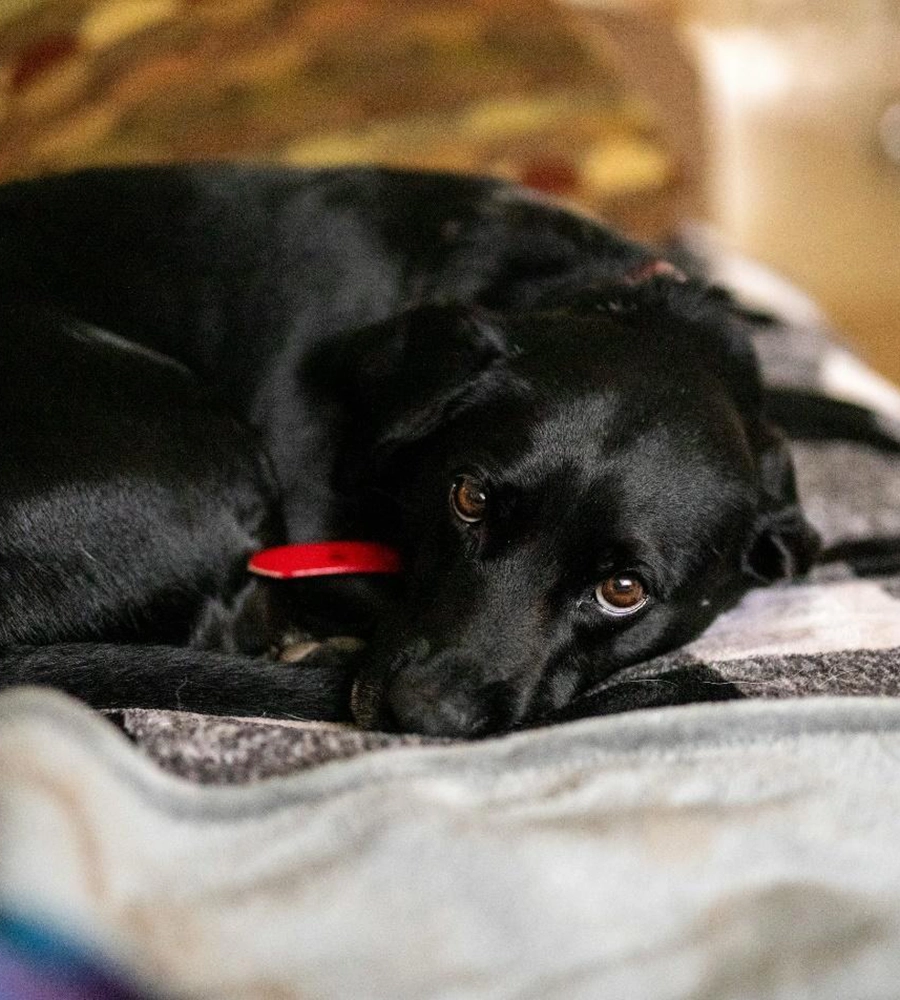As dogs grow old, their requirements and lifestyles change. They may need more rest, different diets, and supplements such as CBD for dogs to support their health.
If your dog is going into its senior years, you may need to visit the vet more frequently for the early detection of any underlying health issues and regular health checkups. Your senior dog might need joint and pain relief supplements and a senior diet to support their aging body.
Our small animal veterinarian has put together helpful tips to care for senior dogs, so read on.
What Age Is a Senior Dog?
It depends on the dog breed whether or not they are considered seniors at a certain age. Small dogs, such as Yorkshire Terriers, tend to live longer and are considered seniors when they reach the age of approximately 11 years.
Labrador Retrievers and other medium and large-sized breeds of dogs reach the age of seven, at which point they are considered senior dogs.
On the other hand, giant breed dogs, including Great Danes, endure a significantly shorter lifetime and can be designated senior citizens as early as five.
When they are roughly seven, dogs of mixed breeds are considered senior. This estimation may be subject to change because it is challenging to ascertain the precise breed of these dogs.
After a comprehensive examination, the veterinarian will provide a predicted life span, usually based on the dentition.
It is essential to recognize this transition during the senior dog age since the requirements for senior dogs are distinct from those for pups and adult dogs.
In the case of elderly dogs, for instance, they may require more frequent visits to the veterinarian for health concerns, their food requirements may shift, and they could be required to take certain medications or supplements consistently to stay healthy and prevent illnesses.
How To Care for a Senior Dog?
Following are some of the most valuable tips for dog owners whose dogs are growing old, from managing exercise to providing supplements.
Vet visits
Caring for your senior canine involves regular health checks with the veterinarian, typically once every six months or every three months if they have a chronic health issue. As dogs age, their immune systems become less robust, making them more prone to getting sick.
Before scheduling these checkups, it can be helpful to explore trusted pet wellness resources such as Petfolk Veterinary Care, which emphasizes the value of consistent, proactive vet monitoring for aging dogs.
Exercise
Participating in regular physical activity may help alleviate discomfort and stiffness and prevent weight gain and the loss of muscle mass.
However, as dogs grow older, you should not involve them in strenuous physical activities as this can put unwanted strain on their muscles and joints. They prefer mild physical activities like walks or small strolls.
Diet
Make the necessary adjustments to your dog’s food to be more suitable for senior dogs after consulting with your veterinarian or an animal nutritionist, as they require different amounts of calories and nutrients as they age.
Along with a nutritious diet, supplements such as glucosamine, chondroitin, omega-3, and others can be added to enhance your senior pet’s health. Some pet owners also find benefits in using turkey tail mushroom for dogs to support their immune system.
Dental care
In addition to providing your dog with dental treats, you should brush their teeth with toothpaste and a finger brush that is safe for dogs. For senior canines, gum disease, and damaged teeth are two of the most common and painful diseases you should look for.
Vaccines
Vaccinations are often well tolerated by older dogs in the same way as younger dogs; nevertheless, each dog deserves to be examined individually.
Love and attention
When it comes to the question of how to care for senior dogs? You cannot underestimate the value of attention and affection. Your dog deserves the love and care you can provide them, especially during their old age. This makes them feel secure and happy, helping them stay focused and motivated. To further support their well-being consider the best calming chews for dogs from PawOrigins, which can help ease anxiety and provide comfort as they age.
Body condition evaluation
Age for senior dogs is a very important factor for dog owners because their weight should be maintained according to it. Identifying whether your pet is underweight, overweight, or at an appropriate size to stay healthy is crucial.







